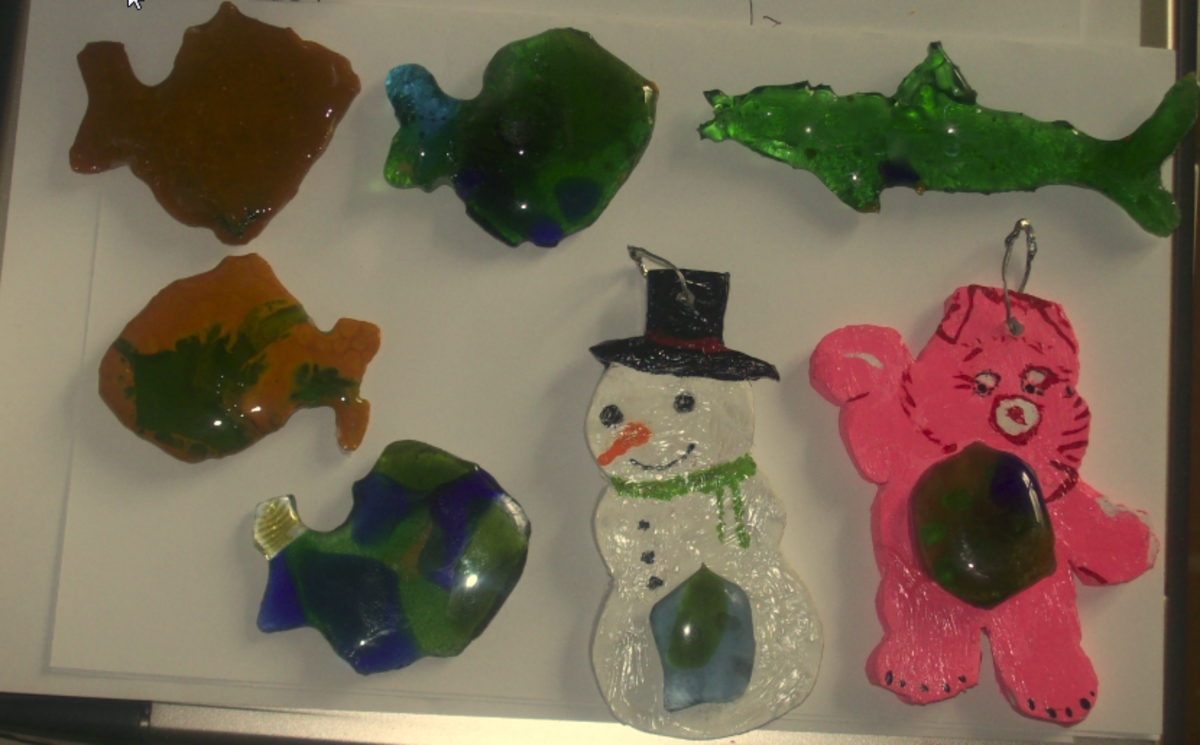Loving All Of Your Children Equally Is Often A Human Impossibility Or Near It!

It is QUITE COMMON for Parents to Favor One Children Over Another



Children are PARENTAL FAVORITES for a VARIETY of Reasons



FAVORITISM CAUSES DISSENSION AMONG SIBLINGS



FAVORED CHILD Often Pays a VERY HIGH Price........



EYES Are Watching.............So Be Veeeery Careful How YOU Treat Your Children!
There are a few parents who actually love all their children equally. They reason why not as children did not ask to be brought into this world. After all, they add, these children are their flesh and blood. In addition to that, they are innocent souls who deserve no less.
These parents further portend that yes, their children have differing styles, opinions, and beliefs. That is fine and good that their children are unique individuals with minds of their own. This does not make them love one child more than another and/or love one child less. They willingly embrace and appreciate the differences in their children.
To these parents, parents who play the parental game of upmanship with their children irrevocably affect them, either positively and/or negatively. They believe that each child is to be respected and cherished for the special entities that they are. They portend that for parents to do otherwise is akin to a subtle form of child abuse.
They maintain that countless children have been damaged by the fact that their parents loved one child and treated them better over their other children. They further contend that where there is preferential parental treatment of one child, there is the opposite treatment of another child in the family. These parents assert that children have a different time as it is being children and parents should be an infinite source of love and support for them.
Then, others portend that it is either impossible or next to impossible for parents to love all their children equally. According to this consensus, children have different personalities. Some are pleasant, a joy, and are easy to be around while others are just a trial. It goes to reason that those children who are deemed more pleasant are more lovable than those who are more challenging so to speak.
Still many people assert that parents are human beings with their own unique foibles and idiosyncrasies. Because of this, parents often displace their personal likes and dislikes upon their children based on tangible and intangible variables such as personality, looks, intelligence, and related characteristics. After all, it is reasoned, many parents view their children as their image. In an overwhelming majority of cases, parents tend to show more affection and treat preferentially children who approximate their characteristics. This is societal law.
It is natural for humans to prefer people who resemble them in looks, characteristics, intelligence, and/or in personality. By associating and/or aligning with people who are similar to us, we feel nonthreatened, secure, and comfortable. Also, people further believe that there is cohesion and unity where there are like minded people. Furthermore, when people have a lot in common, this represents harmony. Above all else, people want harmonious relationships.
It is argued that parents are people like the rest of us. They too yearn for comfortable and harmonious relationships with their children. That is inbred and only natural in the human consciousness. People, including parents, naturally want and gravitate to harmony. This includes children. Children who exhibit characteristics that are deemed to be more attractive and/or positive are rewarded and treated more preferentially by their parents.
Such children are also considered to be "easy" and non-threatening to their parents. Of course, parents are apt to love children which are easier than children who are more challenging. Even though the concept of children are ever changing and evolving, there is the underlying premise that children are better and more lovable when they are more controllable.
Characteristics of children which are considered more attractive and positive by parents varied from parent to parent. Factors which influences the positivity of a child's characteristics can determined by a parent's particular racial/ethnic/ cultural group, socioeconomic status, educational status, predominant familial characteristics, religious/spiritual beliefs, political beliefs, and other tangible and/or intangible factors and variables involved. There no static characteristics which would deem a child's characteristics acceptable to a parent.
Of such preferential treatment of one child does have a parallel negative effect on the other children in the family. They believe that they do not matter. They also begin to hate the child who is the object of parental preferential treatment. Preferential treatment of one child over another often causes family dissension which often lasts for a lifetime.
Children are smart and extremely observant individuals. They instinctively know when one parent loves one child more than the other children in the family. The pecking order exists with the so-called golden child receiving all the parental accolades. This, of course, does the other children a great disservice.
There are children who are quite psychologically damaged because of the blatant preferential treatment that another family member received at the hand of the parents. They, in turned, felt unloved by the parent. They reason that since their parents do not love them, then they probably deserved it in one way or another.
Oftentimes, the child who receives the most preferential treatment by the parent is often retaliated against by the other children in the family. He/she is oftentimes bullied, either emotionally, verbally, and/or physically. While the parents love and idolize him/her, the other siblings deride and scapegoat him/her because he/she does receive the golden glove treatment.
The child who is loved and preferred more than the other children is also affected by the parental dynamic. He/she develops a sense of self-importance and entitlement. He/she believes that as the parents' special child, he/she can do whatever he/she wants and get away with it. This child is actually given carte blanche to do as he/she pleases! Of course, that does not sit well with the other children in the family who strongly portend that if one child is treated like a star, then they should have the same privilege.
However, this child often comes in for a quite rude awakening when he/she leaves the familial environment. Not everyone is going to adore and/or even like this special child. If situations are less than positive in his/her life, he/she usually did not develop the emotional resilience to handle the situation because he/she was considered a prince/princess by his/her parents.
Also, there can be underlying parental expectations regarding this golden child. Remember the saying that when much is given, much is expected. Well, here is the news, people. The special and/or golden child has certain obligations regarding the parents. He/she may be "coerced" to stay home to care for the parents whereas the other children leave home to establish their individual lives and careers.
The special and/or golden child may be expected to follow in their parents' footsteps regarding career and/or other lifestyle choices because the parents have allotted so much funds in order for this child in terms of educational and other intellectual endeavors. In essence, the special and/or golden child has an unwritten and unspoken expectation to pay their parents back for the preferential love that was lavished upon them.
Of course, there are some parents who love one of their children more than they do their other children. Many parents are quite hesitant to admit this but this is an undeniable fact of life. What these parents refuse to admit, their children know. As there is one child who is loved more than other children in the family, there is also the child who is loved less than the other children in the family. Such parental upmanship have positive and negative affects on the children involved. Many families are discordant because of this egregiously divisive parental treatment.
In summation, there are parents who equally love all their children. They assert that children are innocent souls and families are there to give unconditional love and support to each other. Furthermore, there is no one child who is more deserving of love than other child. Conversely, there are parents who actually love one child better than they do other children.
People portend that it is only human nature to love one child more than other child. These same people assert that one child may have characteristics which the parents deem more acceptable than another child who have characteristics which are well........more challenging. It is reasoned, that of course, parents are more apt to show more love to the child whose characteristics are deemed more acceptable than the child with more unacceptable characteristics.
Such preferential parental treatment often cause division and dissension within families. However, the child who is the recipient of the preferential treatment also has a double edged cross to bear. He/she is often has more parental expectations placed upon him/her because of this preferential treatment. Oftentimes, there is an underlying cost of a child being loved more and treated more preferentially by his/her parents. All the glitter is not golden and the price a child pays for such treatment is often exorbitantly high to say the very least !
© 2012 Grace Marguerite Williams








